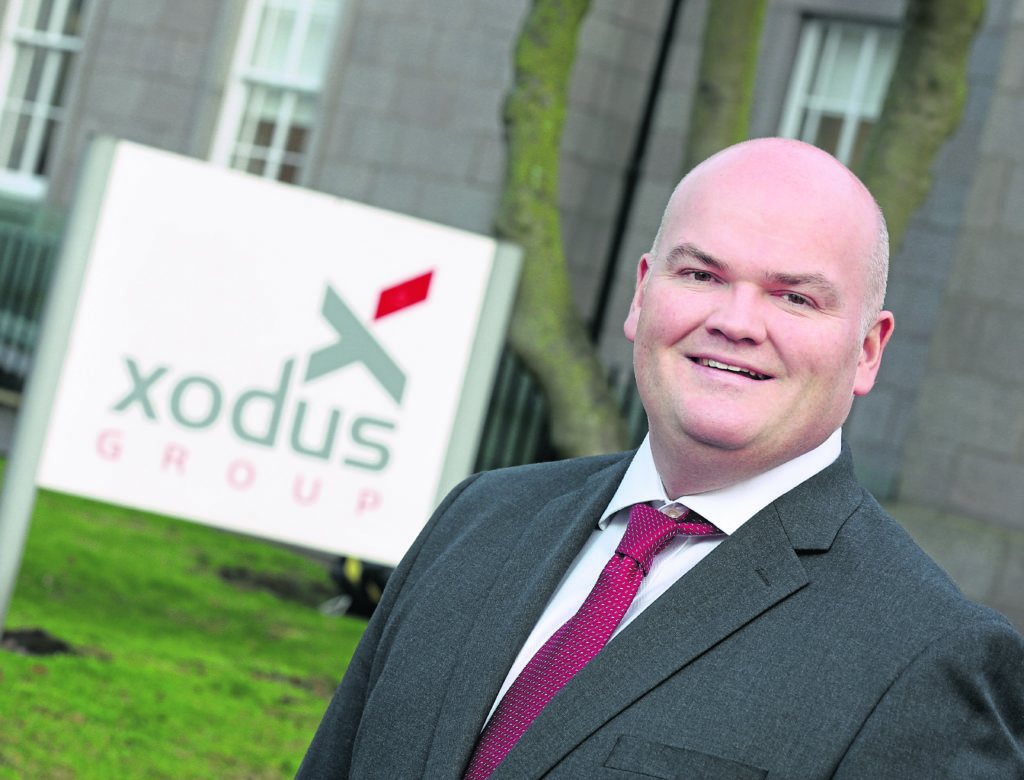
When an industry is faced with a collective crisis, demand for new solutions and ways of working increase as challenges are grappled with.
The urgency for efficiencies is brought into sharper focus and so too is the acceptance of working smarter. We can all marvel at the fast adoption of video platforms as the switch to homeworking took hold, but the reality is that those tools were readily available. It took a global pandemic to make them universally accepted and so too the notion that we can communicate fluidly and be more efficient through their use.
Crisis is the mother of invention. And at Xodus we are testament to that.
A quick review of our technology portfolio reveals the roots of innovation are usually aligned with the toughest of times.
Deep in the downturn of 2015, operator CNR approached Xodus to support the integrity of its North Sea assets. It was a most challenging time for all North Sea businesses. The oil price hit below $35 per barrel and the sector was reeling from what was to be one of the most prolonged downturns it had faced to date. There was a clear objective that the whole subsea integrity process had to be managed in a different way.
We knew that we needed to address the problem from a different perspective. CNR also knew after many years of searching for the perfect Integrity Management solution, it didn’t yet exist off the shelf. An integrated team of engineers from both Xodus and CNR worked hand in glove with our software developers to create XAMIN and deliver a bespoke solution in under six months.
The journey was driven by the Integrity Superintendent having a passion to give his team the tools they needed to do the job he expected them to perform.
XAMIN is a modular integrity management software platform providing energy companies with the toolkit they need to effectively and efficiently manage all of their integrity operations from condition reporting and inspection planning to historical data management. It streamlines the integrity management cycle, linking data to avoid multiple entries, visualising history to give current results.
CNR could quite easily have paid Xodus for XAMIN and moved on with their internal roll out. But the operator shared our vision and was committed to making this a system that would benefit the whole industry, thus they shared their successes with others. XAMIN has now evolved and is being used by five North Sea operators, sharing best practice solutions across all user companies. The other operators benefitted from the investment and time that CNR put into the original version. CNR in turn benefitted from the additional functionality and lessons learned by the other operators, creating a collaborative environment and leading to a common practice that none could have achieved alone.
Similarly, it was a frustration at repetitive tasks and the desire to find a better way in the last downturn that led to the idea for eBase, a cloud based Environmental Impact Assessment tool. Xodus acquired Australia based environmental consultancy Green Light Environmental last year and as well as the brilliant team, this technology was a key attraction.
Following prototype development and funding, eBase was launched in 2016, hugely speeding up the laborious process of EIAs. Petrina Raitt, who now leads our environmental operation in Perth, had recently had a baby, was time starved and sick of repeatedly pulling info from disparate documents. She decided there had to be a better way.
Whilst there are systems that present EIA information, this is the only tool that automates the impact assessment process. It’s not just about speed, but about the quality of the data. It has had strong pick up from operators in Australia and buy in from the regulator and we are now updating for other global locations and including geographic information system (GIS) capabilities.
Xodus launched in buoyant times during 2005 with a small team, but right from the get-go employed senior software developers. The vision was to integrate domain experience through our many varied engineering disciplines with software developers, so that complex challenges would be tackled from the user perspective. It was never about creating a fancy piece of kit, but centred around improving user efficiency by giving real-time access to data, not just from the operation, but from on-line calculations and visualisations that cut the time to assess a problem, react accordingly and take the right decision.
That stands true today and that philosophy is helping us navigate through the critical challenges of 2020 with the double whammy of COVID-19 and low oil price.
Whilst our technology ideas have often germinated during tough times, our approach to innovation is continuous. So much so that we created dedicated roles in the last year to ensure that it is embedded in the way we interact with clients, deliver on projects and develop new solutions.
Crises inevitably accelerate evolution as well as pulling sometimes surprisingly obvious solutions in from the margins. Whilst the focus must be on keeping our families, employees and friends safe, one positive may be that we emerge from this period with new habits and behaviours and an openness to new solutions that reduce the impacts on society.
The industry has a proud legacy of inventing transformational technologies that have enabled great leaps in how we produce energy. As the momentum builds for low carbon solutions to meet climate goals, so too does the opportunity to take all of that knowledge built up through our sector’s 40 plus year legacy of producing oil and gas and super-charge it with new ideas. We share a common goal of enabling the energy transition. And that it something we can all be excited about.
Andrew Wylie, Operations Director Scotland and Norway, Xodus Group
Recommended for you
